

The Inaugural Meeting of the Pacific Island Development Forum (PIDF) was held at the Sheraton Fiji Resort, Denarau Island, Nadi, from Monday 5th August to Wednesday 7th August 2013. The theme of the meeting was, “Leadership, Innovation and Partnership for Green/Blue Pacific Economies”. The Forum attracted more than 300 Stakeholders from more than 40 countries 14 of them from the Pacific. Several high-level representatives from the Pacific graced the Forum with several Heads of State, Heads of Government, ministers and deputies, ambassadors, CEOs and Civil Society leaders contributing passionately towards the programme of the Forum. An integral and important component of the conference was a Green Economy Expo.The exhibition was also at the Sheraton Fiji Resort and feature displays of green products, processes, technology
The PIDF is the Pacific’s most inclusive and highest participatory South-South platform for action on the Green Economy. It is a bold attempt to address the issues of sustainable development through a structured and inclusive approach. This inaugural meeting provided the perfect opportunity for multi-stakeholder visioning and discussion on the Green Economy and the PIDF process. The presence of so many stakeholders was a sign, both of stakeholders’ commitment to the Green Economy and of the important role the PIDF will play in tomorrow’s development agenda. The theme for the meeting was:
‘Leadership, Innovation and Partnership for Green/Blue Pacific Economies’.
The theme highlighted the following:
Leadership. The importance of leveraging Collective Leadership for sustainability. According to recent UN surveys current gaps in implementing sustainable development policies and programs is due to the absence of political will and good governance. The PIDF Inaugural Conference therefore examined the leadership necessary that will enable environmentally socially, culturally and economically sustainable development.
Innovation. The Conference sought to assist participants harness ecologically sound and inclusive innovation for sustainability. The meeting looked at how it can assist participants innovate towards greener solutions
Partnership.Multi-stakeholder high-impact collaborations is critical for sustainable development. It provides fresh opportunity for doing development better by recognizing the qualities and competencies of each sector whether government, civil society or private sector, and finding new ways of harnessing these contributions for the common good. The Summit was notable in its adoption of a people-centered, development-oriented and inclusive multi-stakeholder approach in its activities.
Green/Blue Pacific Economies. The seminar sought to show that the green economy approach in the Pacific is not merely a way to reduce resource intensiveness or pollution but also a way to achieve resilient, inclusive and sustainable development through enhancing livelihoods and fostering new economic opportunities
The Conference mission was to bring together leaders of Government, Industry and Non-Governmental Organisations from the Pacific to address through the green economy the most pressing development challenges facing the region over the next decade and beyond. The meeting has brought about a shift in power relations in the Pacific by valorizing voices that usually go unheard in our development dialogue.
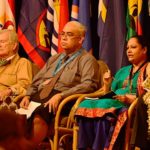
The outputs essential to bringing about Green Economic Policies into the Region have six dimensions. They must be both concrete and strategic. Some must lead to concrete action within countries. Others must offer, to policy-makers in the region, proposals for action at the national, sub-regional and regional levels, to enhance economic and social development through the green economy. In all cases they must specify the most effective partnership models to implement the projects, plans or policies proposed.
The inaugural PIDF Meeting also sought to accomplish the following outcomes:
- An exchange of ideas on how to promote the integration of the three pillars of sustainable development to ensure that policies and initiatives are mutually reinforcing and benefit all members of society;
- Provide examples from the regions on good practices and public policies that promoted integration of the three pillars of sustainable development;
- An enhanced understanding of the work of the PIDF and its role as a unique regional platform for the integration of the three pillars of sustainable development in national economies.
The Conference comprises plenary and concurrent sessions. The plenary sessions will feature presentations and discussions by prominent leaders who all share a deep passion for the development of the Pacific and have unique perspectives on how it can be achieved through the Green Economy. There will usually be two scene-setting presentations at 20 minutes each. It will then be followed by response/insights from 3 panelists then Questions and Answers. The concurrent sessions will feature detailed discussions by participants led by senior regional and national public servants, and development practitioners from the Pacific. These high quality analyses will contribute to our understanding of the challenges facing inclusive and sustainable development in the Pacific and the options that exist for addressing these challenges through the green economy.

Chair Persons
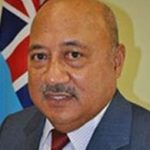
Ratu Inoke Kubuabola
Ratu Inoke Kubuabola, currently the Minister for Foreign Affairs and International Cooperation, commenced his professional career in 1971. He stated with a humble beginning as a Management Trainee at the New Zealand Insurance company for five years. In the subsequent 10 year period till 1987, Minister Kubuabola had progressed as Assistant Manager for the New Zealand Insurance Suva Branch and went on to becoming the General Secretary of the Bible Society in the South Pacific.
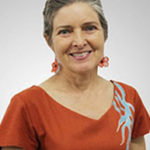
Professor Elisabeth Holland
Professor Elisabeth Holland has been curious about the world ever since she can remember. Early in her childhood, a love of nature and how things work were the seeds she nurtured throughout her life and led her to become an Earth and atmospheric scientist. Elisabeth Holland, is currently the director of PACE-SD and Professor of Climate Change at the University of the South Pacific in Suva Fiji where she is studying climate change.
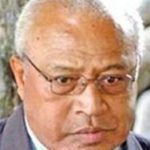
Ambassador Kaliopate Tavola
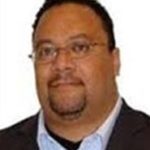
Mr. Taholo Kami
Tongan native, Kami grew up in Papua New Guinea and graduated with an accounting degree from the University of Technology of PNG. He completed MBA in Marketing/eCommerce as a Fulbright scholar at Vanderbilt University. Kami has worked with the United Nations in New York on networking small islands nations by setting up the Small Islands Developing States Network (SIDSNET).
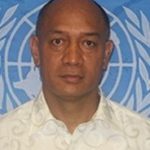
Mr. Iosefa Maiava
Tongan native, Kami grew up in Papua New Guinea and graduated with an accounting degree from the University of Technology of PNG. He completed MBA in Marketing/eCommerce as a Fulbright scholar at Vanderbilt University. Kami has worked with the United Nations in New York on networking small islands nations by setting up the Small Islands Developing States Network (SIDSNET).
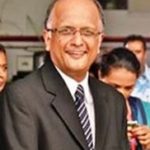
Mr. Nalin Patel
Chairman, Fiji Airways Board of Directors, Suva Nalin Patel is the Managing Partner of G. Lal +Co., Chartered Accountants. He has extensive knowledge in professional services with over 38 years of experience gained internationally and locally in all facets of Accounting Practice and Business Advisory Services, working with a diverse range of international and local clients in a variety of industries, including aviation.
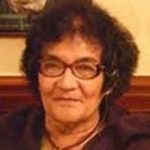
Mrs. Lorine Tevi
A Fijian serving Civil Society Organisations for fifty-one years. In the 60s and 80s established the Methodist Lay Training Centre in Davuilevu, served as a General Secretary of the Pacific Conference of Churches as well as the sub unit on the Education of the World Council of Churches in Geneva, Switzerland, 1982 – 1991. Upon returning home, she served as a staff of the Pacific Theological College, Lecturer at Davuilevu Methodist Theological College.
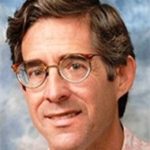
Mrs. Lorine Tevi
Dr. Gerard Finin is resident co-director of East-West Center’s Pacific Islands Development Program (PIDP). He conducts research on contemporary social and economic issues in the Pacific islands region, with ongoing projects focusing on governance and globalization. Finin is also engaged in research and teaching related to the Philippines, particularly northern Luzon. His areas of interest include public policy, social change, development, and urbanization. Finin received his PhD from Cornell University in 1990

Speakers
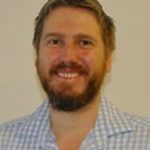
Mr. Chey Scovell
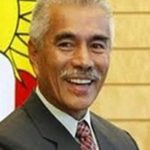
Anote Tong
President Tong is primarily known abroad for his efforts to raise “global awareness on the threat posed by climate change

Xanana Gusmao
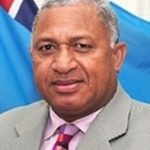
Josaia Voreqe Bainimarama
On 22 September 2014, he was sworn-in as the Prime Minister of Fiji by President Ratu Epeli Nailatikau after his Fiji First Party won the general elections
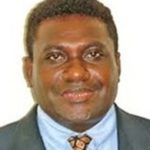
Honorable Gordon Darcy Lilo
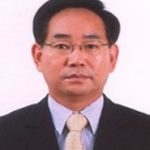
His Excellency Dr. Young-Woo Park
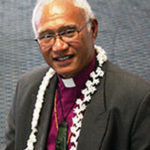
Archbishop the Most Revd. Dr Winston Halapua
Winston was born and raised in Tonga. He has spent most of his life in Fiji. He studied in Fiji, England and Israel. He has published works in the area of Sociology, Ecology and Theology. Books and chapters have been published in Fiji, New Zealand, England and Germany. He lectured in Moana Leadership for twelve years at the Auckland University, New Zealand. He became the first Dean of the College of the Diocese of Polynesia.
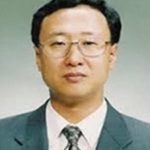
Archbishop the Most Revd. Dr Winston Halapua
Permanent Representative to ICAO and Consul General of the Republic of Korea was born on the 1st February 1953 in Seoul, Korea. In 1977 he graduated from Seoul National University, where he majored in Sociology, he graduated from SNU Graduate School for Public Administration in 1979. In 1977 he passed the High Civil Servant Examination and joined the Ministry of Foreign Affairs.